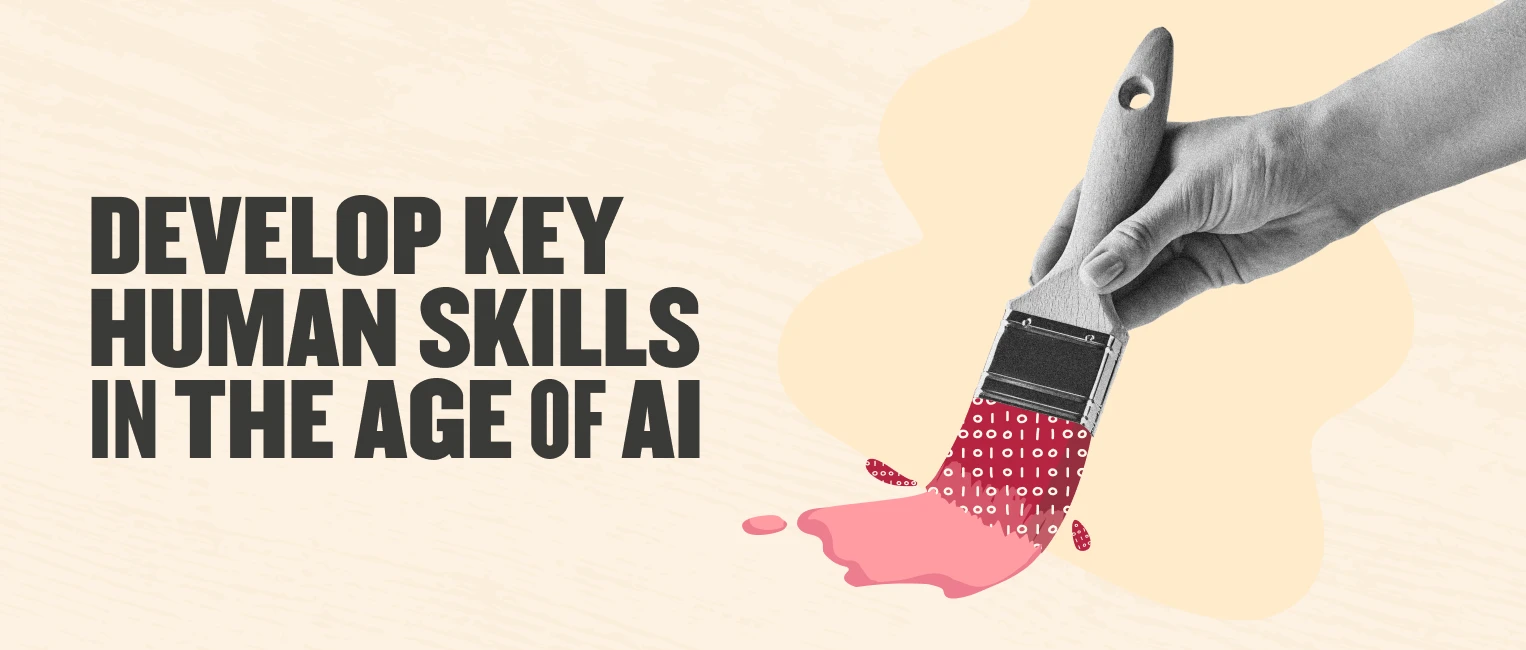If there’s one thing modern HR professionals can agree on, it’s that your people are your greatest asset.
However, in this new age of AI, the ways in which HR needs to take responsibility for their growth, engagement, and professional relevance are changing fast.
On the one hand, people are terrified of being replaced by AI and losing their jobs to redundancy. On the other, according to Reworked, “[p]eople in all kinds of industries are tapping into the technology to make their working lives easier.” Anxious about being disciplined or “replaced by a bot,” many are even hiding the fact that they’re using it.
There’s little doubt that AI is here to stay—but it will most likely not replace human labor. Instead, it’s much more likely to enhance the unique value that people bring, acting as a tool to supercharge their work. Research has found that using generative AI improves people’s productivity by 66 percent, and according to a study by Upwork, “64% of C-suite executives plan to hire more professionals of all types due to generative AI.”
That means your business’s success will continue depending on the people you employ. It’s up to HR to reinvent our approach to workforce planning, developing ways in which AI can streamline and automate the “time-consuming and tedious parts of [people’s] jobs.”
A genuinely modern workforce planning strategy asks what skill gaps you need to fill and how investing in AI upskilling can drive positive, long-term business transformation.
Now is the time to consider how people’s roles will change as they develop ways of increasing efficiency. It’s also critical to think about how AI tools can help prevent burnout, improve retention, and aid recruitment so your company can stand its ground in a crowded marketplace.
So, how can you identify those critical human skills that will support your organization’s future and your people’s professional relevance?
#1 Integrate AI skills in your L&D
Despite the panic, most professional skills will remain relevant in the age of AI. Rather than being replaced by AI, AI will augment these skills—making it essential to allocate resources to upskilling your teams. For example:
- Software developers can find ways of using generative AI to write code faster
- Content professionals can use AI to edit copy more quickly and to identify proofing or grammatical issues
- Project managers can use AI to help them manage complex timelines
- HR professionals can use the new tech to automate processes like pay equity audits and onboarding workflows
As a result of these changes, it’s important to focus on digital literacy in your professional learning and development programs. Consider providing training that helps people leverage AI tools in their regular work, with customized courses for specific departments or job needs.
#2 Focus on the human skills that are here to stay
No matter how intelligent AI becomes, it can never replace the human skills that power the imagination and innovation of your company. As a prediction engine that guesses the most likely next word, AI isn’t able to generate original insights.
For your people, that means focusing efforts on the soft skills that make them so valuable, such as:
- Critical thinking
- Creativity
- Emotional intelligence
- Digital literacy
- Adaptability
- Lifelong learning
Armed with these skills, your people will naturally evolve their roles to fit seamlessly with the future needs of the business and the wider market. Consider emphasizing their importance in your training programs, as well as in your recruitment profiles.
#3 Prepare for new AI-based positions
AI is driving the creation of brand-new career paths as it replaces the function of some traditional entry-level positions. This might mean you need to fast-track new joiners into mid-level roles. As Alexandra Samuel writes in SHRM, “Instead of going from data entry to inside sales to junior account assistant you now are going on a much steeper curve and getting your ‘entry-level’ talent into midlevel roles within a year or two of joining the organization.”
In a similar vein, specialist roles are already hitting job boards around the world. Expect roles and job titles like AI Lawyer, Machine Learning Engineer, AI Project Manager, Deep Learning Engineer, and AI Solutions Architect to become part and parcel of everyday life—especially for your talent and acquisition teams.
Your business is also likely to require a team of AI managers or auditors to oversee the use of generative tools across your organization. Introducing these roles to the business helps ensure that you stay compliant, that your AI systems align with your brand and security policies, and that they are fact-checked and ethically assessed, too.
Preparing for these changes now means you’ll be able to snap up the brightest talent, and help your existing team members upskill or pivot their careers if they so desire.
Recommended For Further Reading
- Prepare for the future of work: Incorporate AI into HR practices
- Why tech adoption is the key to acing HR digital transformation
- How on-the-job training can help close the skills gap
- AI policy template: Creating AI guidelines as company policy
- 30 interview questions for an HR manager position
- 5 human-first ways to train your people to work better with AI
- Best HR AI software tools
Soft skills are here to stay, but AI training is key
As Harvard Business Review put it, “AI won’t replace humans — but humans with AI will.”
The soft skills that make your people valuable are only set to become more useful in the future, but it’s also important that your teams get up to speed with the ways in which AI tech can augment their day-to-day tasks.
It won’t be long before helping your people reach AI proficiency becomes a crucial part of diversity, equity, and inclusion efforts, too, so it’s important to get started now.
That means providing digital training and emphasizing how much you continue to value human skills. Done right, this approach will give your organization everything it needs to harness the power of AI, with a confident, productive, and efficient workforce behind it.


